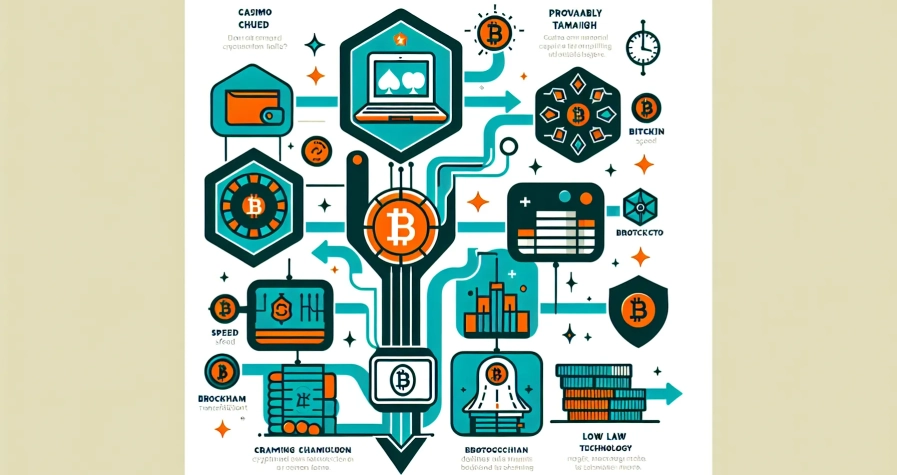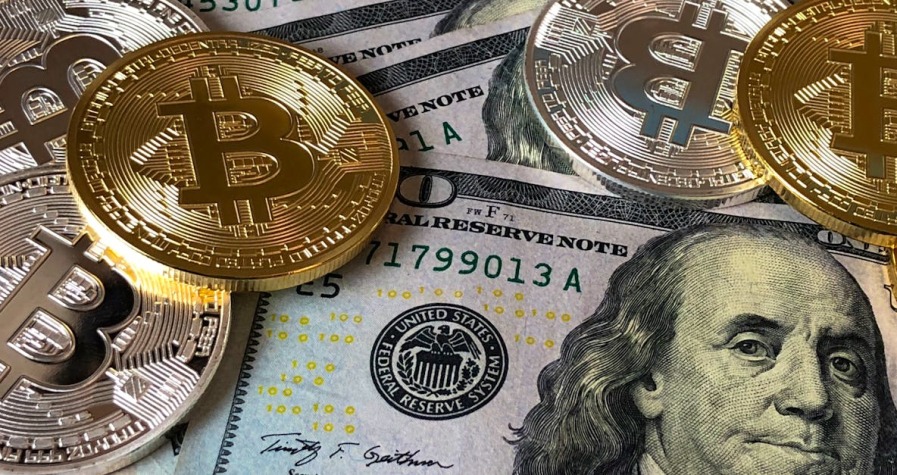You’ve probably heard whispers about DAOs in crypto circles and wondered what all the fuss is about. These mysterious organisations are reshaping how we think about governance, ownership, and collective decision-making in the digital age.
Decentralized Autonomous Organizations represent a revolutionary approach to running businesses and communities without traditional hierarchical structures. Instead of CEOs and boards of directors, DAOs rely on smart contracts and token-based voting systems to make decisions collectively. Think of them as digital cooperatives where every member has a voice proportional to their stake.
From managing multi-billion-pound investment funds to coordinating global art projects, DAOs are already making waves across industries. Whether you’re a crypto enthusiast or simply curious about the future of organisational structures, understanding DAOs will give you valuable insight into tomorrow’s economy.
What Is a DAO (Decentralized Autonomous Organization)?
A Decentralized Autonomous Organization (DAO) represents a blockchain-based entity that operates through smart contracts rather than traditional management structures. You’ll find DAOs function as self-governing organisations where members collectively make decisions through token-based voting systems. These digital entities eliminate centralised authority by distributing governance power among stakeholders who hold governance tokens.
Smart contracts serve as the foundational layer for DAO operations, automatically executing predetermined rules and decisions without human intervention. You participate in governance by purchasing or earning tokens that grant voting rights proportional to your stake. Each proposal requires community consensus through transparent voting mechanisms recorded on the blockchain.
DAOs operate across three core components that distinguish them from conventional organisations:
- Decentralised governance – No single authority controls decision-making processes
- Autonomous execution – Smart contracts automatically implement approved proposals
- Organisational transparency – All transactions and votes remain publicly visible on the blockchain
Token holders propose changes, allocate funds, and determine strategic directions through democratic processes. You’ll observe that DAOs typically require minimum token thresholds for proposal submissions and voting participation. The blockchain records every decision permanently, creating an immutable governance history.
Treasury management represents a crucial DAO function where members collectively decide fund allocation for projects, partnerships, and operational expenses. You contribute to these decisions based on your token holdings, with larger stakes providing greater voting influence. The automated nature of smart contracts ensures approved expenditures execute without requiring traditional approval chains or intermediaries.
How Do DAOs Work?
DAOs operate through three interconnected mechanisms that eliminate traditional management structures. You’ll find these systems work together to create transparent, automated governance that distributes power across community members.
Blockchain Technology and Smart Contracts
Blockchain networks form the technical foundation where DAOs execute their operations. Smart contracts contain self-executing code that automatically enforces your organisation’s rules when specific conditions are met, removing the need for human intermediaries or central authorities.
These smart contracts record every transaction and decision on a distributed ledger that you can verify independently. The blockchain’s transparency ensures you can audit all activities whilst the immutable nature prevents unauthorised changes to established rules. When you participate in a DAO, smart contracts handle everything from token distribution to proposal execution without requiring manual intervention.
The automated execution reduces operational costs and eliminates single points of failure that plague traditional organisations. You benefit from trustless interactions where the code itself becomes the enforcing mechanism rather than relying on corporate hierarchies or legal frameworks.
Token-Based Governance Systems
Governance tokens represent your voting power within the DAO ecosystem. You acquire these tokens through purchase, contribution, or earning mechanisms depending on each DAO’s specific structure and requirements.
Your influence scales proportionally to the number of governance tokens you hold, creating a stake-based democracy where larger token holders possess greater decision-making authority. Token distribution varies across DAOs, with some favouring equal allocation whilst others reward early adopters or active contributors with enhanced voting rights.
The tokenised approach aligns your incentives with the organisation’s success since token values typically correlate with DAO performance. However, you might encounter centralisation risks when large holders dominate voting processes, potentially undermining the decentralised principles that define DAO governance structures.
Voting Mechanisms and Decision Making
Proposal submission and voting periods define how you participate in DAO decision-making processes. You can submit proposals for protocol changes, fund allocation, or governance modifications during designated timeframes established by smart contract parameters.
Voting mechanisms typically require majority approval for proposals to pass, though specific thresholds vary between different DAO implementations. You’ll encounter minimum staking requirements that prevent spam whilst participation rewards incentivise active engagement in governance activities.
Alternative voting models beyond token-weighted systems include reputation-based governance where your historical contributions influence voting power. Time-locked voting prevents last-minute manipulation whilst delegation systems allow you to assign voting rights to trusted community members when you can’t participate directly in every decision.
Types of Decentralised Autonomous Organisations
Decentralised autonomous organisations manifest in distinct categories, each serving specific purposes within the blockchain ecosystem. Understanding these DAO types helps you identify which structure aligns with your participation goals and investment strategy.
Investment DAOs
Investment DAOs pool members’ capital to collectively invest in assets, startups, or blockchain projects. You gain voting rights proportional to your token holdings, allowing you to influence investment decisions alongside other community members. These organisations typically fund their treasuries through token sales, NFT issuance, or income-generating services.
Your participation in investment DAOs involves proposing potential investments, conducting due diligence collectively, and voting on allocation decisions. Members share both profits and losses based on their token ownership percentage. Legal frameworks for investment DAOs vary significantly by jurisdiction, affecting taxation and regulatory compliance requirements.
Notable investment DAOs include The DAO (historically significant despite its challenges), MetaCartel Ventures, and Flamingo DAO, which focus on different asset classes from early-stage startups to digital collectibles.
Protocol DAOs
Protocol DAOs govern blockchain protocols and decentralised applications, managing technical upgrades and treasury spending decisions. You participate by holding governance tokens that grant voting power over protocol parameters, fee structures, and development funding allocations.
Your involvement encompasses voting on protocol improvements, treasury management for development grants, and strategic partnerships. These DAOs often manage substantial treasuries generated from protocol fees, requiring careful consideration of long-term sustainability and ecosystem growth.
Examples include Uniswap DAO governing the popular decentralised exchange, Compound DAO managing the lending protocol, and MakerDAO overseeing the DAI stablecoin system. Each protocol DAO maintains specific governance processes tailored to their technical requirements and community needs.
Social DAOs
Social DAOs focus on community building and collaborative projects, supporting creators, shared interests, or social causes. You participate through token ownership or reputation-based systems that determine your influence within the community’s decision-making processes.
Your engagement involves funding creative projects, organising events, curating content, or supporting social ventures aligned with the DAO’s mission. Social DAOs often emphasise inclusivity and diverse participation rather than purely token-weighted governance models.
Examples include Friends With Benefits DAO for cultural creators, Constitution DAO (which attempted to purchase historical documents), and various creator-focused DAOs supporting artists, writers, and musicians. These organisations demonstrate how decentralised governance can facilitate community-driven cultural and social initiatives.
Benefits of DAOs
DAOs offer distinct advantages over traditional organisational structures through their blockchain-based foundation. These benefits reshape how you participate in governance, access opportunities, and build trust within digital communities.
Transparency and Trust
DAOs operate on public blockchains where every transaction, decision, and vote receives immutable recording. You can audit all organisational actions independently, as the blockchain maintains a permanent, tamper-proof ledger of activities. This transparency eliminates the opacity common in traditional organisations and prevents corruption whilst fostering trust among stakeholders.
The immutable nature of blockchain records means you access complete visibility into fund allocation, proposal outcomes, and member participation. Smart contracts execute decisions automatically without human intervention, removing opportunities for manipulation or favouritism. This systematic transparency creates accountability mechanisms that traditional organisations struggle to achieve.
Democratic Governance
DAOs distribute power evenly among members rather than concentrating authority in executive positions. Each governance token you hold grants voting rights, enabling equal participation in organisational decisions regardless of your background or social status. This egalitarian structure supports fairness and accountability whilst encouraging active involvement in shaping policies and direction.
Token-based voting systems allow you to submit proposals directly to the community without requiring approval from intermediary authorities. The democratic process operates continuously, enabling rapid response to opportunities and challenges. Your influence scales with your stake in the organisation, aligning personal interests with collective success.
Global Accessibility
DAOs eliminate geographical barriers that restrict participation in traditional organisations. You can join and contribute to any DAO community with internet access and governance tokens, regardless of your location or nationality. This global reach enables seamless collaboration across borders, bringing diverse perspectives and talents into unified communities working towards common goals.
The 24/7 nature of blockchain operations means you participate in governance activities at any time without coordinating across time zones or waiting for business hours. DAOs remove traditional barriers such as regulatory restrictions, citizenship requirements, or physical presence mandates that limit involvement in conventional organisations.
Challenges and Limitations of DAOs
Despite their revolutionary potential, DAOs face significant obstacles that you must understand before participating. These challenges span technical risks, regulatory complexities, and operational inefficiencies that can impact your experience and investment.
Technical Vulnerabilities
Smart contracts form the backbone of your DAO operations, yet they’re susceptible to critical coding flaws that can compromise your funds. The 2016 “The DAO” attack demonstrates this vulnerability perfectly – hackers exploited a recursive call bug to drain significant funds from participants’ wallets.
Your DAO faces multiple technical risks that threaten financial security:
- Re-entrancy attacks allow malicious actors to repeatedly withdraw funds before balance updates
- Integer overflow and underflow errors can manipulate calculations and token distributions
- Timestamp dependence vulnerabilities enable miners to influence time-sensitive contract functions
- Front-running attacks let bad actors exploit transaction order for profit
- Access control misconfigurations grant unauthorised permissions to critical functions
You can protect your DAO through rigorous security measures. Comprehensive smart contract audits identify potential vulnerabilities before deployment, whilst bug bounty programmes incentivise ethical hackers to discover flaws. Formal verification processes mathematically prove contract correctness, and advanced development tools catch errors during coding phases.
Regulatory Uncertainty
DAOs operate in a legal grey area that creates compliance challenges for your participation. Traditional regulations weren’t designed for decentralised entities, leaving you uncertain about legal obligations and protections across different jurisdictions.
Regulatory ambiguity affects several aspects of your DAO involvement:
| Regulatory Challenge | Impact on DAOs |
|---|---|
| Entity classification | Unclear legal status affects liability and taxation |
| Securities regulations | Token sales may trigger compliance requirements |
| Cross-border operations | Conflicting international laws create confusion |
| Member responsibilities | Undefined duties and protections for participants |
This regulatory uncertainty limits mainstream adoption and exposes you to potential legal risks. Financial institutions and corporations often avoid DAO participation due to compliance concerns, whilst individual members face unclear tax obligations and liability exposure.
Coordination Difficulties
Decision-making in DAOs becomes increasingly complex as membership grows, creating efficiency challenges that traditional organisations avoid. Your voting participation demands significant time and expertise, particularly when evaluating technical proposals or complex financial decisions.
Coordination problems manifest in several ways:
- Slow consensus building delays urgent responses compared to centralised authority structures
- Voter fatigue reduces participation as proposal frequency increases
- Technical complexity barriers exclude less experienced members from meaningful participation
- Token concentration effects allow wealthy holders to dominate decision outcomes
- Scalability limitations make governance unwieldy as membership expands
High participation requirements can overwhelm you with constant voting demands, leading to decreased engagement over time. Complex proposals requiring technical understanding create knowledge barriers that limit your effective participation, whilst those holding larger token quantities wield disproportionate influence over collective decisions.
Additional operational challenges include immature governance frameworks with limited real-world precedent and participation imbalances where technical expertise determines influence levels rather than merit or diverse perspectives.
Real-World Examples of Successful DAOs
You can observe how DAOs transform traditional governance through several pioneering organisations that demonstrate their practical applications across different sectors.
The DAO launched as Ethereum’s first major decentralised autonomous organisation in 2016. This groundbreaking entity raised over $150 million through crowdfunding, establishing the blueprint for future DAOs. Despite suffering a significant security breach that resulted in Ethereum’s hard fork, The DAO provided essential lessons about smart contract security and established foundational principles for subsequent decentralised organisations. You can trace many modern DAO security practices back to insights gained from this initial experiment.
MakerDAO operates as one of the most influential DAOs in decentralised finance, governing the DAI stablecoin ecosystem. You participate in MakerDAO’s governance by holding MKR tokens, which grant voting rights on critical parameters including interest rates, collateral types, and protocol upgrades. The organisation demonstrates how DAOs manage complex financial systems, with community members collectively overseeing billions of dollars in locked assets whilst maintaining the stability of DAI against the US dollar.
ConstitutionDAO showcased the rapid mobilisation capabilities of decentralised organisations by raising $40 million in just one week. This collective aimed to purchase an original copy of the US Constitution at auction, demonstrating how DAOs coordinate large-scale fundraising efforts without traditional institutional structures. Although the bid was unsuccessful, ConstitutionDAO proved that decentralised communities can organise substantial capital and coordinate complex projects within remarkably short timeframes.
ENS DAO governs the Ethereum Name Service, which manages Web3 domain names and digital identity infrastructure. Since 2021, you’ve seen ENS DAO members make decisions about protocol development, fee structures, and ecosystem expansion through token-based voting. The organisation illustrates how DAOs manage critical blockchain infrastructure, with community governance ensuring that essential services remain decentralised and responsive to user needs.
Nouns DAO presents a unique model by minting exactly one NFT daily in perpetuity, with each token granting governance rights over the organisation’s treasury. You can observe how Nouns DAO members vote on funding proposals, brand initiatives, and community projects, creating an ongoing experiment in decentralised brand management and cultural development. This model demonstrates how DAOs integrate creative expression with governance mechanisms.
| DAO | Amount Raised/Managed | Primary Function | Launch Year |
|---|---|---|---|
| The DAO | $150 million | Investment fund | 2016 |
| MakerDAO | Billions in assets | DeFi protocol governance | 2017 |
| ConstitutionDAO | $40 million | Collective bidding | 2021 |
| ENS DAO | N/A | Domain service governance | 2021 |
| Nouns DAO | Growing treasury | Cultural/creative governance | 2021 |
These examples demonstrate how DAOs operate across diverse sectors including investment management, protocol governance, collective purchasing, infrastructure management, and creative projects. You can see that successful DAOs share common characteristics: clear governance mechanisms, engaged communities, and transparent decision-making processes that leverage blockchain technology for autonomous operation.
How to Join or Create a DAO
Joining a DAO
Joining a DAO requires three fundamental steps that grant you access to decentralised governance systems. You begin by visiting the DAO’s official website and connecting a compatible cryptocurrency wallet such as MetaMask or Coinbase Wallet to establish your digital identity within the organisation.
Next, you acquire the DAO’s governance tokens through various methods including purchasing them on decentralised exchanges, earning them through community contributions, or receiving them as airdrops for early participation. These tokens serve as your voting power within the organisation, with influence typically scaling proportionally to your token holdings.
Once you possess governance tokens, you participate in decision-making processes through voting platforms like Snapshot for off-chain governance or on-chain systems integrated directly into the blockchain. Your participation extends beyond voting to include proposal discussions, community engagement, and collaborative project development.
Creating a DAO
Creating your own DAO involves six strategic steps that establish autonomous governance structures. You define the organisation’s mission and purpose clearly, outlining specific objectives and target communities to ensure focused development and member alignment.
Following mission definition, you write comprehensive governance rules covering voting mechanisms, proposal requirements, token distribution models, and operational procedures. These rules become encoded into smart contracts that automatically execute decisions when predetermined conditions are met.
You deploy these smart contracts on blockchain platforms such as Ethereum, Polygon, or Binance Smart Chain, choosing networks based on transaction costs, speed, and security requirements. Popular deployment tools include Aragon and DAOhaus, which provide templates and interfaces that simplify the technical creation process.
Establishing organisational structure involves defining member roles, setting voting thresholds for different proposal types, determining token distribution mechanisms, and creating treasury management protocols. Clear structure prevents governance conflicts and ensures efficient decision-making processes.
Attracting aligned members requires community building through social media engagement, educational content creation, and demonstrating the DAO’s value proposition. Early members often become ambassadors who drive adoption and contribute to governance development.
Enabling member voting completes the DAO creation process, allowing token holders to make ongoing decisions about protocol upgrades, treasury allocation, partnership agreements, and strategic direction. Continuous governance ensures the organisation adapts to changing circumstances and member needs.
| DAO Creation Tools | Key Features | Blockchain Support |
|---|---|---|
| Aragon | Template-based deployment, governance modules | Ethereum, Polygon |
| DAOhaus | Community-focused tools, proposal systems | Ethereum, xDai |
| Colony | Reputation-based governance, task management | Ethereum |
| DAOstack | Holographic consensus, scalable voting | Ethereum |
Testing governance mechanisms with small-scale decisions before launching major initiatives reduces risks and identifies potential improvements. Starting with simple voting structures allows gradual complexity increases as the community grows and governance needs evolve.
The Future of Decentralised Autonomous Organisations
DAOs represent a transformative shift toward decentralised, automated, member-driven organisations that reshape organisational collaboration within the Web3 ecosystem. These entities offer transparent, fair, and efficient governance models that eliminate traditional intermediaries whilst fostering democratic participation across global communities.
Expanding Applications Across Industries
You’ll witness DAOs extending their influence beyond blockchain protocols into diverse sectors including decentralised finance (DeFi), crowdfunding projects, digital communities, and traditional business operations. Investment DAOs are pooling capital for collective ventures, whilst protocol DAOs govern blockchain infrastructure and technical upgrades. Social DAOs create collaborative environments for content creation, education, and community building.
The healthcare sector presents opportunities for DAOs to manage patient data governance, pharmaceutical research funding, and medical supply chain coordination. Education DAOs can facilitate decentralised learning platforms, credential verification systems, and collaborative research initiatives. Creative industries benefit from DAOs managing intellectual property rights, artist royalties, and community-driven content platforms.
Technological Evolution and Integration
Smart contract functionality continues advancing with more sophisticated governance mechanisms, automated treasury management, and enhanced security features. Layer-2 blockchain solutions reduce transaction costs whilst improving scalability, making DAO participation accessible to broader audiences. Artificial intelligence integration enables predictive governance analytics, automated proposal screening, and intelligent voting recommendations.
Cross-chain interoperability allows DAOs to operate across multiple blockchain networks, expanding their reach and functionality. Oracle integration provides real-world data feeds for informed decision-making, whilst privacy-preserving technologies protect sensitive governance information without sacrificing transparency.
Regulatory Framework Development
Legal recognition of DAOs progresses as jurisdictions develop specific regulatory frameworks addressing governance structures, liability issues, and tax obligations. Wyoming, Delaware, and several international jurisdictions establish legal entity status for DAOs, providing regulatory clarity and operational legitimacy.
Compliance tools emerge to help DAOs navigate regulatory requirements whilst maintaining decentralised governance principles. These developments reduce uncertainty for participants and enable traditional institutions to engage with DAO ecosystems confidently.
Governance Model Innovation
Hybrid governance models combine token-based voting with reputation systems, expert panels, and quadratic voting mechanisms to address power concentration issues. Delegation systems allow token holders to assign voting rights to subject matter experts, improving decision quality whilst maintaining democratic participation.
Liquid democracy implementations enable dynamic vote delegation, where participants can reclaim voting rights for specific proposals they find important. These innovations address voter fatigue, increase engagement, and ensure more informed decision-making processes across diverse DAO communities.
Conclusion
DAOs represent a fundamental shift in how you can organise collaborate and make collective decisions in the digital age. They’re transforming traditional power structures by distributing authority amongst members through transparent blockchain-based governance systems.
As these organisations mature you’ll likely see them become increasingly sophisticated with improved technical infrastructure and clearer regulatory frameworks. The combination of evolving governance models and technological advances positions DAOs to play a crucial role in shaping the future of work and collaboration.
Whether you’re considering joining an existing DAO or creating your own understanding these decentralised systems will become essential as they continue expanding across industries. The future of autonomous organisations is here and it’s decentralised democratic and powered by blockchain technology.
Frequently Asked Questions
What is a DAO and how does it work?
A Decentralized Autonomous Organization (DAO) is a digital cooperative that operates without traditional hierarchies. It uses blockchain technology and smart contracts to facilitate decision-making through token-based voting systems. Members who hold governance tokens can vote on proposals, with their influence proportional to their stake. All transactions and decisions are recorded transparently on the blockchain, creating a self-governing entity where power is distributed among stakeholders rather than centralised authority.
What are the main types of DAOs?
There are three primary types of DAOs: Investment DAOs that pool capital for collective investments, Protocol DAOs that govern blockchain protocols and manage technical upgrades, and Social DAOs that focus on community building and collaborative projects. Each type serves specific purposes within the blockchain ecosystem, with members participating through token ownership or reputation systems to influence decisions related to investments, protocol governance, or social initiatives.
How do I join a DAO?
To join a DAO, you need to connect a compatible cryptocurrency wallet, acquire the DAO’s governance tokens through purchase or earning them, and participate in decision-making processes through voting platforms. Once you hold tokens, you can vote on proposals and participate in governance discussions. Your voting power is typically proportional to the number of tokens you hold within that specific DAO.
What are the main benefits of DAOs?
DAOs offer enhanced transparency as all transactions are recorded immutably on public blockchains, democratic governance that distributes power evenly among members, and global accessibility that removes geographical barriers. They eliminate traditional intermediaries, reduce operational costs, and enable diverse collaboration across borders. The token-based voting system ensures equal participation opportunities, whilst blockchain technology provides independent verification and auditing capabilities.
What challenges do DAOs face?
DAOs face several challenges including technical vulnerabilities in smart contracts that could compromise funds, regulatory uncertainty creating compliance difficulties, and coordination problems as membership grows. Decision-making can become inefficient with larger groups, leading to voter fatigue. Large token holders may dominate voting processes, potentially centralising power. Additionally, the immutable nature of blockchain makes correcting mistakes or adapting to unforeseen circumstances challenging.
How do I create my own DAO?
Creating a DAO involves defining its mission and purpose, writing governance rules, deploying smart contracts on the blockchain, establishing organisational structure, building a community, and enabling member voting mechanisms. Various tools like Aragon and DAOhaus facilitate DAO creation by providing templates and infrastructure. It’s recommended to test governance mechanisms with small-scale decisions before launching major initiatives to reduce risks and enhance effectiveness.
Are DAOs legally recognised?
Legal recognition of DAOs varies significantly by jurisdiction and is still evolving. Some regions are developing regulatory frameworks that provide clearer governance structures and compliance requirements for DAOs. However, regulatory ambiguity remains a challenge in many areas, leaving participants uncertain about legal obligations and protections. It’s essential to research local regulations and seek legal advice when participating in or creating DAOs.
What is the future outlook for DAOs?
DAOs are expected to reshape organisational collaboration within the Web3 ecosystem by offering transparent and efficient governance models. Their applications are expanding across industries including decentralised finance, healthcare, education, and creative sectors. Technological advancements in smart contracts, layer-2 solutions, and artificial intelligence are enhancing DAO functionality. Innovations in governance models, such as hybrid systems combining token-based voting with reputation mechanisms, are improving decision-making quality and participant engagement.







